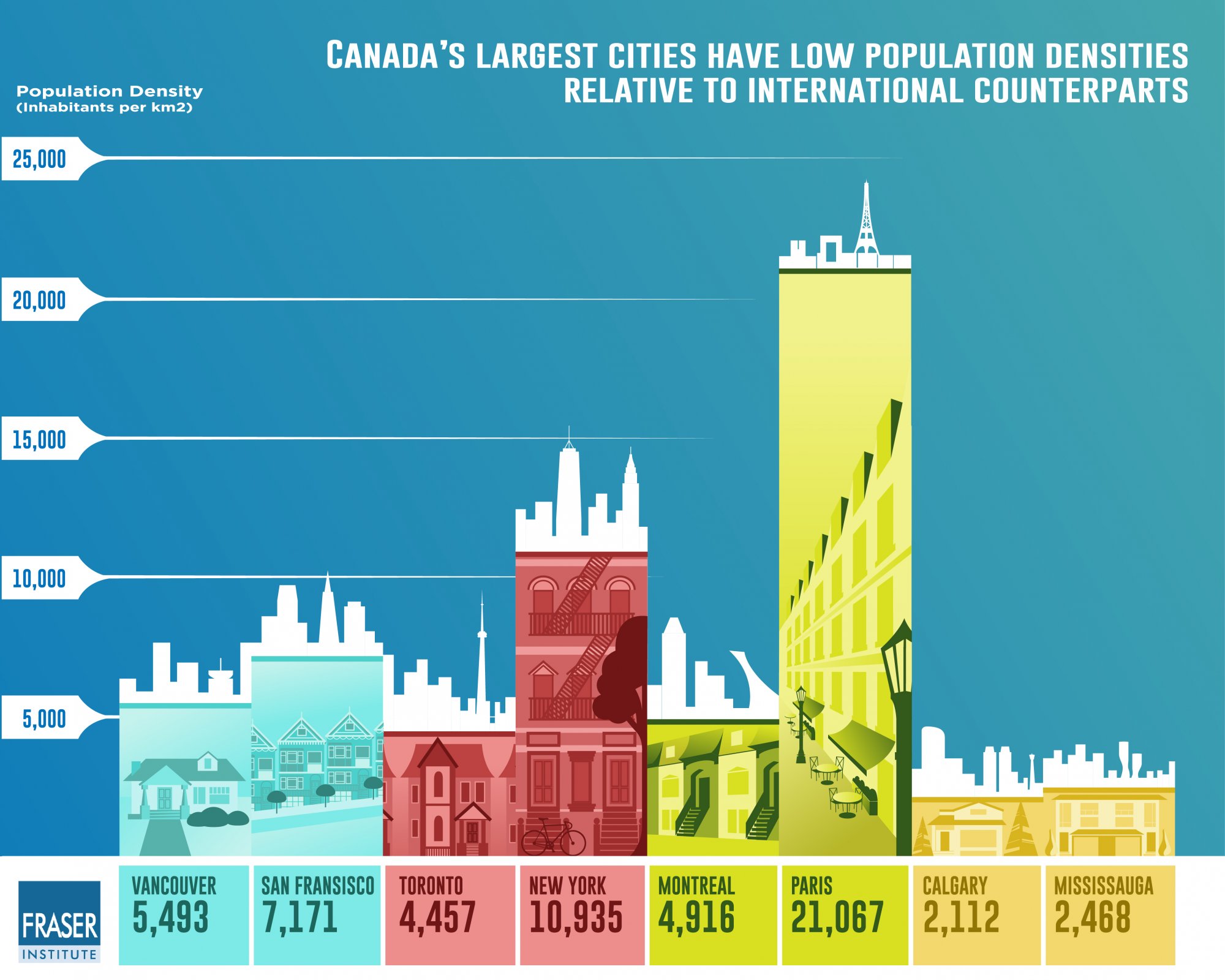Canadian cities are expensive, but, according to a new report from the Fraser Institute in Toronto, they have room to spare for more housing .

The Fraser Institute has released a new report [pdf] comparing the density of Canadian cities to cities around the world—finding that Canadian cities are far less dense than comparable cities around the world.
Josef Filipowicz writes a short blog post to summarize the findings of the report, including this bullet point:
Of the 30 cities analyzed, Canada’s largest have low population densities relative to international counterparts. The coastal tourist hubs of San Francisco and Barcelona are 1.31 and 2.89 times as dense as Vancouver, Canada’s densest major city. Chicago, New York, and London are 1.03, 2.45, and 2.48 times as dense as Canada’s financial and media centre, Toronto. Paris is 4.29 times as dense as Montreal, and even the Toronto suburb of Mississauga is 1.17 times as dense as Calgary, Canada’s third most populous municipality.
The findings of the report are used to build a case for more development to alleviate rising housing prices in Canadian cities. To promote the report and that argument, the Fraser Institute also created a snazzy and simple infographic that allows a direct comparison of densities of Canadian cities with other world-class Western cities.

FULL STORY: Room to Grow: Comparing Urban Density in Canada and Abroad

Planetizen Federal Action Tracker
A weekly monitor of how Trump’s orders and actions are impacting planners and planning in America.

Maui's Vacation Rental Debate Turns Ugly
Verbal attacks, misinformation campaigns and fistfights plague a high-stakes debate to convert thousands of vacation rentals into long-term housing.

San Francisco Suspends Traffic Calming Amidst Record Deaths
Citing “a challenging fiscal landscape,” the city will cease the program on the heels of 42 traffic deaths, including 24 pedestrians.

Defunct Pittsburgh Power Plant to Become Residential Tower
A decommissioned steam heat plant will be redeveloped into almost 100 affordable housing units.

Trump Prompts Restructuring of Transportation Research Board in “Unprecedented Overreach”
The TRB has eliminated more than half of its committees including those focused on climate, equity, and cities.

Amtrak Rolls Out New Orleans to Alabama “Mardi Gras” Train
The new service will operate morning and evening departures between Mobile and New Orleans.
Urban Design for Planners 1: Software Tools
This six-course series explores essential urban design concepts using open source software and equips planners with the tools they need to participate fully in the urban design process.
Planning for Universal Design
Learn the tools for implementing Universal Design in planning regulations.
Heyer Gruel & Associates PA
JM Goldson LLC
Custer County Colorado
City of Camden Redevelopment Agency
City of Astoria
Transportation Research & Education Center (TREC) at Portland State University
Jefferson Parish Government
Camden Redevelopment Agency
City of Claremont



























